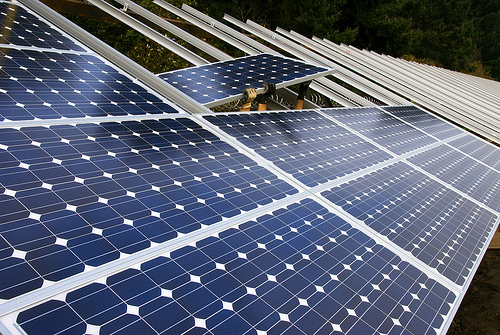UK plummets down clean energy investment rankings
Despite claiming they would be the “greenest government ever” a new report casts doubts on the Coalition and the uncertainty surrounding their low-carbon energy policies. The research by Pew Environment Group shows private investment in the sector in the UK crashed in 2010, in spite of a global resurgence.

 Despite a 30 per cent increase in global clean energy investment to $243 billion in 2010, private investment in UK clean energy dropped 70 per cent leaving the country languishing in 13th among the G-20 nations, according to a report by The Pew Charitable Trusts.
Despite a 30 per cent increase in global clean energy investment to $243 billion in 2010, private investment in UK clean energy dropped 70 per cent leaving the country languishing in 13th among the G-20 nations, according to a report by The Pew Charitable Trusts.
The recession limited global investment in the clean energy sector in 2009 but the report shows it has “roared back” in 2010.
China topped the rankings again thanks to a 39 per cent increase in investment to $54.4 billion, Germany knocked the U.S. down to 3rd with a 100 per cent increase and perhaps surprisingly Italy climbed up from 8th to 4th.
Phyllis Cuttino, director of Pew’s Clean Energy Program said: “The clean energy sector is emerging as one of the most dynamic and competitive in the world, witnessing 630 percent growth in finance and investments since 2004.”
In 2009 the UK was 5th thanks to large-scale offshore wind energy investment and what the report calls the Labour government of the time’s “commitment to strong action on climate change”.
In contrast Cuttino said: “Countries like China, Germany and India were attractive to financers because they have national policies that support renewable energy standards, carbon reduction targets and/or incentives for investment and production that create long-term certainty for investors.”
India, who attracted $4 billion of investment and is committed to deploying 20 GW of solar capacity by 2020, climbed into the top 10 and the report’s authors believe the country has “a bright future as a destination favourable to investors”.
Wind power continues to garner the most investment ($95 billion) but solar energy grew 53 per cent in 2010 to $79 billion.
Michael Liebreich, CEO of Bloomberg New Energy Finance, believes that is because of decreasing costs and government backing but said: “In the UK, [solar energy] activity stalled somewhat in 2010 due in no small part to policy uncertainty during a substantial part of the year.”
The UK Department of Energy and Climate Change (DECC), who recently revealed deep cuts to the incentives to large photovoltaic installations, were unable to comment on the report at the time of publication.
Greg Barker, DECC’s Climate Minister, is currently in the U.S. with six green business leaders hoping to drum up investment and impress with the Coalition’s green policies.
Despite the UK’s poor showing and China’s dominance, Europe leads the regional rankings attracting $94.4 billion and Italy has become the first country to make solar power cost-competitive with traditional electricity in some regions.
For further information:
Who wins the clean energy race? 2010 edition (The Pew Charitable Trusts)
DECC feed-in tariffs consultation announcement
Image: OregonDOT | Flickr






